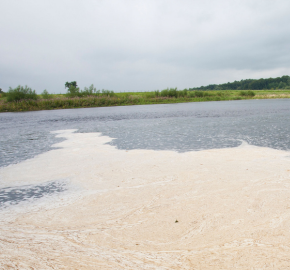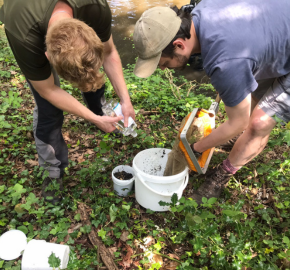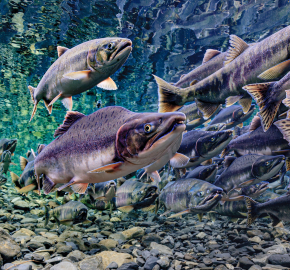Making progress in the freshwater data landscape
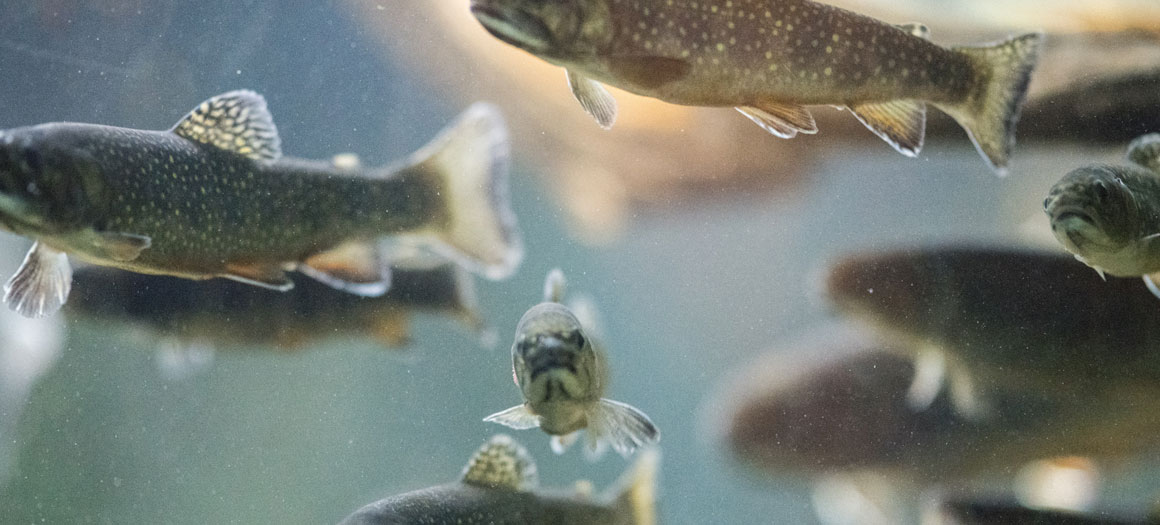
Our rivers are polluted by a cocktail of chemicals, nutrients, sediment and sewage, and only 16% are considered ecologically healthy. Yet, despite the shocking figures, the coverage, resolution and frequency of our national monitoring regimes continues to decline.
Through SmartRivers, citizen scientists are helping to fill some of these monitoring gaps. But what data is being produced and how is it being integrated into the current data landscape?
The SmartRivers database
SmartRivers enables volunteer ‘hubs’, supported by an Institute of Fisheries Management (IFM) certified training scheme, to sample and analyse invertebrates to a near-professional standard. Volunteers are trained to sample adhering to the regulators three minute kick-sweep sampling guidelines and how to identify invertebrates relevant to their river to species-level. The results, in the form of species lists, are submitted to our free, open-access database.
The species for each site are inputted into the database, which generates a water quality ‘scorecard’ identifying the impact of organic pollution, nutrient enrichment, sediment, chemicals and flow stress. Comparing scorecards along a river system allows us to identify water quality pinch points, highlighting where and what the pressures may be. The raw species lists themselves are also incredibly useful, providing invaluable data on species distributions, as well as highlighting rare and invasive species. This is higher resolution than the statutory macroinvertebrate monitoring currently being undertaken.
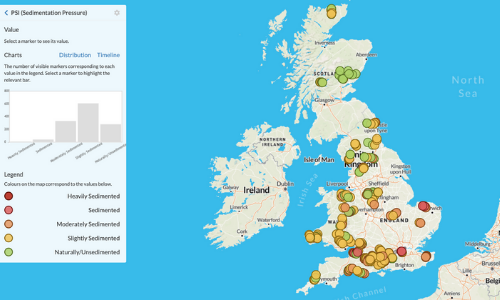 To access the SmartRivers database email smartrivers@wildfish.org with your full name to request a login. A demo on how to interrogate the database is available here: https://www.youtube.com/watch?v=QVxW5UfG_ZI
To access the SmartRivers database email smartrivers@wildfish.org with your full name to request a login. A demo on how to interrogate the database is available here: https://www.youtube.com/watch?v=QVxW5UfG_ZI
Wider integration
Data from both citizen science and statutory monitoring schemes is currently extremely fragmented. From different user interfaces to different access permissions – finding current and historical data on river health is not particularly straightforward. When we created SmartRivers, one of our main objectives was to feed our results into existing platforms, so it could someday be part of a ‘one stop shop’ for river monitoring data.
We have made progress towards this goal through integration into the UK Centre for Ecology & Hydrology (CEH) Freshwater Data Portal. This portal contains a comprehensive collection of data, from the Environment Agency’s water quality and macroinvertebrate monitoring to well established citizen science schemes like the Riverfly Partnership and Freshwater Watch. Viewing citizen science data alongside Agency monitoring data in this way allows more effective visualisation about pressures on the environment as well as the way wildlife is responding to them.
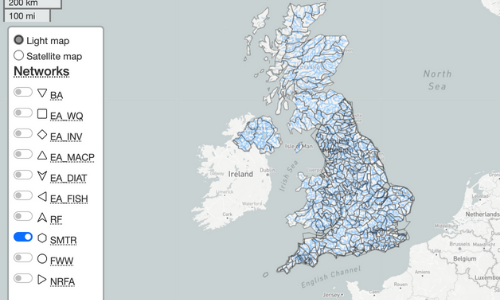 The CEH Freshwater Data Portal can be viewed here: https://eip.ceh.ac.uk/hydrology/ncea-freshwater-data
The CEH Freshwater Data Portal can be viewed here: https://eip.ceh.ac.uk/hydrology/ncea-freshwater-data
The Government must do more
Without a strong data baseline it is extremely difficult to determine the long term impacts of the pressures plaguing our watercourses or confidently measure the success of actions undertaken to improve them.
Data collected by volunteers can introduce concerns about accuracy and reliability. To boost confidence in SmartRivers data, where volunteers are undertaking their own invertebrate identification, we operate a robust quality control assessment system. Third party data, especially when quality controlled like SmartRivers, should be widely accepted and better used by regulators to help fill the gaps. Only with a holistic approach to data collection and presentation can we prevent lack of data being used as an excuse to delay action.
Citizen science data is a tool that should be included as part of a wider toolbox, but the Government still has a responsibility to fill data gaps by operating fit for purpose monitoring schemes, driven by the needs of the environment and not resource availability.
Further information
To find out more about becoming a SmartRivers hub and the benefits it can bring to local river restoration projects, and in shaping national water policy, please visit the SmartRivers page or email smartrivers@wildfish.org

